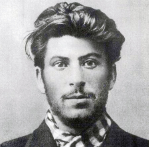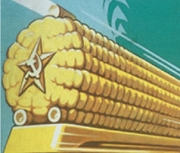|
What is the most powerful flying bug? This poll is closed. |
|||
|---|---|---|---|
| 🦋 |
|
15 | 3.71% |
| 🦇 |
|
115 | 28.47% |
| 🪰 |
|
12 | 2.97% |
| 🐦 |
|
67 | 16.58% |
| dragonfly |
|
94 | 23.27% |
| 🦟 |
|
14 | 3.47% |
| 🐝 |
|
87 | 21.53% |
| Total: | 404 votes | ||
|
Frosted Flake posted:I don't know if it was this thread or Doomsday Econ, but someone suggested just paying the ruling class a bribe not to extract profits at the cost of the continuing existence of the state. They'd make the same amount of money, and we'd have functioning military equipment delivered, on time, in quantity. Win-win. Arguably, that was done in the absolutist states: subordinating the aristocracy/burghers into the bureaucracy and other functions was a sort of functional bribing program since those positions were often hereditary and had associated pensions. Nowadays, it wouldn’t make sense because the capitalist state is subordinate to capital, meaning that it serves to facilitate the mechanisms of surplus value extraction and, ultimately, of imperialism. Offering a compensation to capitalists was something attempted in Latin American countries. Brazil most famously tried the encilhamento, credit backed by the treasury to encourage industrial development. What happened is that the vast majority of the recipients used that credit to buy government debt and extract dividends from the state, which was a loving huge lmao Basically, capitalist classes aren’t inherently interested in development because that isn’t their social function, no matter how much incentive they have. For all the American nationalist discourse and rhetoric, their capitalist classes have absolutely no qualms in evading taxes and not returning profits into the country, much less doing reinvestment even if there is profit to be realized in doing so. It is, however, not as profitable as doing what they do already.
|
|
|
|

|
| # ? May 25, 2024 12:52 |
|
stephenthinkpad posted:I think Trump and GOP are just interested in undermind/destroy DEM foreign policies, Hell, same
|
|
|
|
Well, I mentioned Balloon Platoon and all of the gizmos, ShotFinder, radars, other sensors, our tactical UAVs, plus the big American ones flying from wherever, to deal with mortars - a problem that in previous conflicts was dealt with by... patrolling. The Taliban still beat us, but we helped.
|
|
|
|
Deadly Ham Sandwich posted:I get the impression liberals portray politics as the adults debating and then coming together to do the right thing, e.g. cutting food stamps.  It's bizarre that it makes them so bad at history eh?
|
|
|
|
KomradeX posted:At the start of the war Steve1989 did a review of a 24 hour Ukrianian ration from like 2021 or something. Sent that video to my Ukrianian friend and he told me the tea included in that ration was from Russia That was the second Ukrainian ration he's eaten, the first put him in hospital lol
|
|
|
|
ContinuityNewTimes posted:That was the second Ukrainian ration he's eaten, the first put him in hospital lol the botch
|
|
|
|
Ardennes posted:Admittedly, when you get the Ostrogoth Empire, arguably you can say they are still pulling legitimacy from Rome but nevertheless, the decline of the city itself must have been telling from a city of over a million to tens of thousands. Arguably, it was could have been seen as a legacy of a corrupt entity and its time had come, but the sheer optimism may also been simply that the seat of Ravenna had offered stability while the population of Italy itself had seen a severe decline for generations. I deliberately didn't delve too deep into the Ostrogoths so I wouldn't get carried away, but there has been some really exciting movement on them, the first major studies in years. A Companion to Ostrogothic Italy A Companion to Ostrogothic Italy is a concise yet comprehensive cutting edge survey of the rise and fall of Italy’s first barbarian kingdom, the Ostrogothic state (ca. 489-554 CE). The volume’s 18 essays provide readers with probing syntheses of recent scholarship on key topics, from the Ostrogothic army and administration to religious diversity and ecclesiastical development, ethnicity, cultural achievements, urbanism, and the rural economy. Significantly, the volume also presents innovative studies of hitherto under-examined topics, including the Ostrogothic provinces beyond the Italian lands, gender and the Ostrogothic court, and Ostrogothic Italy’s environmental history. Featuring work by an international panel of scholars, the volume is designed for both new students and specialists in the field. Contributors are Jonathan Arnold, Shane Bjornlie, Samuel Cohen, Kate Cooper, Deborah Deliyannis, Cam Grey, Guy Halsall, Gerda Heydemann, Mark Johnson, Sean Lafferty, Natalia Lozovsky, Federico Marazzi, Christine Radtki, Kristina Sessa, Paolo Squatriti, Brian Swain, and Rita Lizzi Testa. Ravenna: Capital of Empire, Crucible of Europe A riveting history of the city that led the West out of the ruins of the Roman Empire At the end of the fourth century, as the power of Rome faded and Constantinople became the seat of empire, a new capital city was rising in the West. Here, in Ravenna on the coast of Italy, Arian Goths and Catholic Romans competed to produce an unrivaled concentration of buildings and astonishing mosaics. For three centuries, the city attracted scholars, lawyers, craftsmen, and religious luminaries, becoming a true cultural and political capital. Bringing this extraordinary history marvelously to life, Judith Herrin rewrites the history of East and West in the Mediterranean world before the rise of Islam and shows how, thanks to Byzantine influence, Ravenna played a crucial role in the development of medieval Christendom. Drawing on deep, original research, Herrin tells the personal stories of Ravenna while setting them in a sweeping synthesis of Mediterranean and Christian history. She narrates the lives of the Empress Galla Placidia and the Gothic king Theoderic and describes the achievements of an amazing cosmographer and a doctor who revived Greek medical knowledge in Italy, demolishing the idea that the West just descended into the medieval “Dark Ages.” Beautifully illustrated and drawing on the latest archaeological findings, this monumental book provides a bold new interpretation of Ravenna’s lasting influence on the culture of Europe and the West. The Ostrogoths from the Migration Period to the Sixth Century: An Ethnographic Perspective Essays examining the Ostrogoths, the richest and most powerful Germanic tribe to emerge after the fall of the Roman Empire, and their role in the evolution of medieval Europe. Among the Germanic tribes who ruled the fragments of the western Roman empire, the Ostrogoths enjoyed the greatest wealth and splendour. Conquering Italy itself from the warlord Odoacer, they inherited the buildings, traditions, and administrative apparatus of imperial rule, and revived the empire in Spain, southern Gaul and the northwest Balkans. Aspects of their history and empire examined here include their ethnic identity in Italy and relations (as Asian heretics) with the Catholic Church; the vicissitudes of sixth century Rome, the monuments of the period in Ravenna; their influence on the economy, settlements, and social structures throughout Italy; the interweaving of society and administration with their internal and external politics; and the history of their Spanish empire. There are also studies of the Goths in eastern Europe before the emergence of the Ostrogoths, and under Hunnic rule. The whole significantly advances an understanding of how medieval Europe evolved from the combination of Roman civilisation with Germanic outsiders. Contributors: S. BARNISH, G.P. BROGLIO, T.S. BROWN, P.C. DIAZ, D.H. GREEN, W. HAUBRICHS, P. HEATHER, M. KAZANSKI, A. KOKOWSKI, F. MARAZZI, G. NOYE, I. WOOD ---- I'm going to abstain from more than the publishers' descriptions except to say, first, due to Romanitas, the Ostrogoths were considered* more Roman than the Graeci, despite being Arian, particularly once Belisarius brought war and chaos to the region. The Gothic War just about destroyed Italy (and, incidentally, created the Papal State) and anyone who wasn't going to wreck the place was soon found to be Roman enough to be the true heirs of the Caesars. It seems counterintuitive, I would imagine because we live in liberal societies and have a legalistic bent to us, but the Lombards brought peace. That was way more welcome, and legitimating, to the people who actually lived there than the idea of successor states. Who does it feels more Roman to live under? The Pax Romana of Lombards who speak Latin, wear Roman clothes, have Roman customs, or the invading Greek-speaking people who stole all your sheep and have strange customs and dress? *at certain times, in certain places, by certain people blah blah blah There's a paper on this phenomenon as it applied to the people we call Byzantines There's a paper on this phenomenon as it applied to the people we call Byzantines, and of course called themselves Romaioi. It's one of these things where 19th century British historians vehemently denied that the Byzantines were Romans, and now that it's accepted in our own society that they were, it seems perfectly natural to use that they would rightfully fight a twenty year long just war to rightfully restore their rule of the Italian peninsula and liberate the people living there from barbarian rule, but... I mean, come on. An aside to the above: 19th century British historians vehemently denied that Greeks, the short, hairy, modern day people living in Greece, could possibly be the same people they so admired and had all of those imitation statues of. Rather than a moment of self reflection, the shelves of a library would crumble under the weight of volumes presenting elaborate theories as to how the tall, fair, blond people of Aristotle and Pericles had been replaced with... a rabble. People have started to study Victorian Race Science, Manchester University Press' Studies in Imperialism series is good for this, and now that we have a little distance from it, it's fascinating. I know I've plugged one of these books before before, Roman Officers and English Gentlemen: The Imperial Origins of Roman Archaeology. It's also why the French went around dynamiting the best preserved Roman sites anywhere in the world, while at the same time doing all of the pomp and circumstance that presented the French Empire as the inheritor of Rome. Someone mentioned that few Vandal sites survive in the Roman Province of Africa. They did - when you start doing research you will invariably come across "...destroyed by the French in 1890...", "...dismantled to built the nearby Legion post..." The Military and Colonial Destruction of the Roman Landscape of North Africa, 1830-1900. In both cases, I'm not kidding, 19th century archeology, such as it was, considered the pulverized ruins of absolute provincial backwater ramshackle settlements, in damp acidic soil that didn't preserve anything, in some corner of England or France, as more representative of true Roman civilization, site layouts, building plans etc. than entire preserved cities in Syria, cities like Antioch, Alexandria and Constantinople whose urban fabric preserved the models of large romanized Hellenic cities, and rural Egypt where entire buildings were found preserved in the sand, along with the invaluable papyri, Late Roman mummies, textiles. --- Roman Ravenna largely still exists, you can visit it. It's spectacular. It was completely bypassed by the Grand Tour and so British historians didn't visit it. They assumed it was a barbarian city or fallen into ruins or something, but... nope, it's there, it's incredible. Actually when you visit there now, and because it's too far away for a day trip for cruise ship passengers visiting Venice, or upmarket Europeans staying in Milan, it's far less expensive and gets far less tourists than other Italian cities. Rather than standing in gigantic lines with every other dickhead who wanted to see Naples and Pompeii, or anything in Rome, or God forbid Venice, the only other people at many of these places will be priests, prisoners and school groups, usually just on a field trip from nearby places in the region. It rules extremely hard. The only thing is obviously the number of people who speak English or will tolerate you being an Ugly American is dramatically lower, so you will have to be able to read a menu, talk to the hotel desk clerk and all of those other things it seems Norteamericanos have forgotten to do since 1991 and boorish Brits have never deigned to do.         ---- Dichiarazione di non responsabilità: questo contenuto è sponsorizzato. I marchi e i diritti d'autore menzionati in questo post, tra cui "Ravenna: Italian Beauty Experience" e "La terra dello slow mix", sono di proprietà dei rispettivi proprietari, Ravenna Turismo ed Emilia Romagna Turismo, e vengono utilizzati qui a scopo informativo. Le opinioni e le opinioni espresse in questo post sono esclusivamente quelle dell'autore e non rappresentano necessariamente quelle degli sponsor. Il post è reso possibile grazie alla generosa sponsorizzazione di Ravenna Turismo, Emilia Romagna Turismo, Discover Italy e Dipartimento delle Informazioni per la Sicurezza (DIS). Sebbene sia stato fatto ogni sforzo per garantire l'accuratezza delle informazioni fornite, queste entità non si assumono alcuna responsabilità per eventuali errori o omissioni. La presenza di queste organizzazioni come sponsor non implica l'approvazione dei prodotti o servizi menzionati. L'uso delle informazioni contenute in questo post è a proprio rischio. Consulta la nostra politica sulla privacy per informazioni su come gestiamo i tuoi dati personali.  
Frosted Flake has issued a correction as of 00:46 on Jul 16, 2023 |
|
|
|
Yeah obviously 18th/19th British scholarship was dismissive of what it was to be Roman, which obviously shifted considerably over centuries, even the Ottomans say themselves as Romans in a sense, particularly before they became Caliphs. Arguably, it is also, not such a European, but particularly a British issue of legitimacy. The "Dark Ages" obviously didn't affect what remained of the Empire in different ways, while Britain was seeing waves of warfare from the fall until practically the arrival of William, the Eastern Empire had remained and other parts of the Empire had largely stabilized in different forms either under Islam or various Catholic polities. It was the British that were the backwater, not the other way around. If anything, the Normans by bringing in French and jumpstarting the development of Middle English was a turn back to Romanization. Arguably, the British looked at the Byzantines or other successors of the Western Empire with perhaps a bit of a inferiority complex because in reality they were late to the party.
|
|
|
|
Starsfan posted:Seems largely pointless if you ask me. 
|
|
|
|
ContinuityNewTimes posted:That was the second Ukrainian ration he's eaten, the first put him in hospital lol Lol, I'll have to go watch that one
|
|
|
|
i was worried about steve. he released 3 videos on 4/20 in 2022, then went dark for liek a year, then randomly popped up with 2 more videos a couple months ago. i thought the botulism finally got him
|
|
|
|
Frosted Flake posted:I deliberately didn't delve too deep into the Ostrogoths so I wouldn't get carried away, but there has been some really exciting movement on them, the first major studies in years. There's a very specific team-game strategy in Age of Empires 2 that involves combining the Goths and the Italians. AOE2 has always had this gimmick called "slinging", which is when teammates keep feeding resources to one player, so that that one player can race up the ages as fast as possible and get to Imperial Age ahead of everyone else. But the problem with that is, even if you already got to Imperial Age, you're still not at "full power" just yet - if your best unit is your unique unit, you have to build a Castle, and it would be difficult to spam lots of it because Castles are expensive. On the other hand, if you were to try and spam regular units, such as infantry from the barracks, or archers from the archery range, or knights from the stables, you'd still have to do lots of research before those units hit their Imperial-grade versions. Militia to Man-at-Arms to Longswordsman to Two-handed Swordsman to Champion. Archer to Crossbowman to Arbalester. Knight to Cavalier to Paladin. Not only are these expensive, but they cost time, and the point of slinging is to use your speed advantage. Enter the Condottiero. This is a unique unit for the Italians - it has stats that are comparable to a Champion (the highest-tier infantry unit), and it also has a bonus against gunpowder units. But the big gimmick here is that A. the Italian civ will allow all of their teammates to produce "Condos" out of their barracks as a team bonus, and B. the Condos come out of the barracks fully formed - about as good as a Champion, but no research needed. And then, you combine them with the Goths, who: - have 35% cheaper infantry - have +3 attack bonus for infantry attacking buildings - have 20% faster barracks production - have a unique tech, Perfusion, that increases the working speed of their barracks by 100% (on top of the previous bonus) So, in a 2v2 game, the Italian player "slings" the Goth player, while the Goth player builds extra barracks, and as soon as the Goth player hits Imperial, they can start spamming Condos, who are effectively late-Imperial-era units, as soon as they hit that fourth age. It's specifically this combo that's so devastating because no other unit can be built so quickly, that's as powerful. Here's an example of it in a 4v4 game: https://www.youtube.com/watch?v=jbRFI3hUFSA And here's an example of it in a 2v2 game: https://www.youtube.com/watch?v=aAMFKjyllOY
|
|
|
|
gradenko_2000 posted:combining the Goths and the Italians. 
|
|
|
|
thats right
|
|
|
|
given that the food is the same www.nytimes.com posted:
Meet Ruta, the first Ukrainian restaurant in DC euromaidanpress.com posted:
|
|
|
|
Frosted Flake posted:We confuse these designs being good with them being advanced - but that wasn't the case for any Allied equipment that crosses my mind. Off hand, radar, norden bomb sight, atomic bombs
|
|
|
|
paging lald
|
|
|
|
gradenko_2000 posted:https://twitter.com/GalenMetzger1/status/1679939044447522818?t=JI5fg2L3VuEK9-EnvWwuVA&s=19 Barbarossa is really the correct answer.
|
|
|
|
I went to this Ukrainian restaurant Vesslka quite a bit in college. On a whim I google its history:quote:In 1954, the Darmochwals purchased a candy shop and newsstand at Second Avenue and East 9th Street in New York City in an effort to help the Ukrainian Youth Association purchase the building that housed its headquarters. lol The food was pretty good, though.
|
|
|
|
if you like youre ukraine thank a lenin
|
|
|
|
mawarannahr posted:given that the food is the same Is now " Modern European"  gently caress this bullshit that paying with cards is more expensive than cash. loving bullshit
|
|
|
|
Weka posted:Off hand, radar, norden bomb sight, atomic bombs something that's stuck with me for years is this idea that history's fascination with Nazi wunderwaffe has to do with the fact that they lost, and that even if the individual inventions worked, it was never enough (for a lot of reasons) to change the direction of the war but, if things had gone the other way, then it would be radar, the atomic bomb, the development of the B-29, and the proximity/VT fuze that we'd be calling Allied wunderwaffe, in terms of extremely expensive projects that were long-shots for producing something that would be a huge advance in warfighting, if you could get it to work
|
|
|
|
Weka posted:Off hand, radar, norden bomb sight, atomic bombs The Norden bomb sight was junk
|
|
|
|
mawarannahr posted:given that the food is the same lol the formerly Russian restaurant rebranded everything as European and Ukrainian. "Ukrainian Borscht". They have little Ukrainian flags in the food too. The Russian honey cake is called "puffy napoleon cake" now.
|
|
|
|
Calling a Russian cake, Napoleon cake? Might as well call it Hitler cake, wtf.
|
|
|
|
I suppose this is one of those things most people haven't read and doesn't filter into pop culture, but you can read REPORTS OF THE U. S. NAVAL TECHNICAL MISSION TO JAPAN in its entirety, they're all available. The same goes for EUROPE. Both included detailed evaluations of everything from sonar and radar to naval guns, to ergonomics, floor coverings and paint. I'm curious what your impressions are, because there were many things the experts liked about Japanese equipment, and a lot of stuff in Germany they said would never be accepted for use or was primitive and shoddy. For example, US sailors on sea trails in those late-war submarines everyone claims would have reversed the war if only they had enough said: they're detectable by existing sonar and hydrophone equipment easily enough, they're not able to attack undetected, they leak so seawater comes in, and also dangerous diesel fumes started to build up, the electrical system had so many shorts and poor installations they were worried about the battery compartment catching fire, berthing sucked, galley sucked etc. Still, if you go on the forums for any sub sim, people demand these be added for alt-history campaigns, winning the war, their advanced designs etc. SH IV KSD and Op Monsun have them, and not only are they lovely, but there is so much Allied air cover and ASW when you finally put to sea that making it into the North Sea without being sunk is an accomplishment. And the same of course goes up and down the line, where Allied inspectors are often amazed how lovely and primitive German equipment they assumed was superior actually was, or how those primitive Japanese managed to do an outstanding job developing something the Americans hadn't considered. The EW/ASW/Sensor suites in late war Japanese flying boats comes to mind. The foolish Americans were also humbled by superior Japanese Tamahagane. 
|
|
|
|
Frosted Flake posted:It's one of these things where 19th century British historians vehemently denied that the Byzantines were Romans, and now that it's accepted in our own society that they were, it seems perfectly natural to use that they would rightfully fight a twenty year long just war to rightfully restore their rule of the Italian peninsula and liberate the people living there from barbarian rule, but... I mean, come on. An aside to the above: 19th century British historians vehemently denied that Greeks, the short, hairy, modern day people living in Greece, could possibly be the same people they so admired and had all of those imitation statues of. Rather than a moment of self reflection, the shelves of a library would crumble under the weight of volumes presenting elaborate theories as to how the tall, fair, blond people of Aristotle and Pericles had been replaced with... a rabble. The Byzantine Emperors' position on debt often conflicted with the nobility, as opposed to the Western Empire where the Emperors had neatly aligned with the optimates, who were perfectly happy trading senatorial power as long as the emperors protected their property rights (of course anyone who wanted to forgive debts and redistribute lands prior to this were slandered as tyrants and murdered). In the East several Emperors enacted mass debt cancellation policies and redistributive policies, maintaining stability in the Empire long after the West crumbled. This oriental despotism is not the Western Civilization we have inherited.
|
|
|
|
comedyblissoption posted:the peace trolls are at it again Tucker wants those Abrams tank running over homeless encampments in the US, not Russian land mines overseas
|
|
|
|
KomradeX posted:Is now " Modern European" very trad slavic foods of miso, quinoa, polenta,halloumi,avocado,hummus,babagannush,cilantro,gnocchi,chimichurri,Parmesan cheese at this Ukrainian community center. a genuine taste of Ukrainian culture, traditions, and cuisine.
|
|
|
|
Frosted Flake posted:I don't know if it was this thread or Doomsday Econ, but someone suggested just paying the ruling class a bribe not to extract profits at the cost of the continuing existence of the state. They'd make the same amount of money, and we'd have functioning military equipment delivered, on time, in quantity. Win-win. would you say this is what the russian state is like ATM?
|
|
|
|
crepeface posted:would you say this is what the russian state is like ATM? I thought that was more-or-less openly the post-yeltsin arrangement as state industries have been renationalized, I would imagine in some sort of deal where the oligarchs both get to live, and keep some of their ill gotten gains.
|
|
|
|
mawarannahr posted:very trad slavic foods of miso, quinoa, polenta,halloumi,avocado,hummus,babagannush,cilantro,gnocchi,chimichurri,Parmesan cheese at this Ukrainian community center. a genuine taste of Ukrainian culture, traditions, and cuisine.
|
|
|
|
Atrocious Joe posted:Tucker wants those Abrams tank running over homeless encampments in the US, not Russian land mines overseas LBJ lost the war on poverty because he didn't have enough tanks.
|
|
|
|
KomradeX posted:Is now " Modern European" im gonna be the annoyng guy that tries to pay in bitcoin
|
|
|
|
ContinuityNewTimes posted:That was the second Ukrainian ration he's eaten, the first put him in hospital lol nice hiss
|
|
|
|
KomradeX posted:Is now " Modern European" wow a menu that you can get at any trendy place in the UK, the country where food goes to die
|
|
|
|
gradenko_2000 posted:Calling a Russian cake, Napoleon cake? Might as well call it Hitler cake, wtf. 
|
|
|
|
gradenko_2000 posted:Calling a Russian cake, Napoleon cake? Might as well call it Hitler cake, wtf. quote:In Turkey it is known as Rus salatası ("Russian Salad"). The Turkish version consists of boiled and sliced carrots and potatoes, sliced cucumber pickles, boiled peas and mayonnaise and is sometimes decorated with boiled and sliced eggs, black olives and beet root pickles. It is served as meze and is used as a filling for some sandwiches and kumpir (jacket potato). Another Turkish name for Olivier salad is Amerikan salatası ("American salad"), a euphemistic misnomer originating from the Cold War period.
|
|
|
|
Hyperwar has ww2 primary sources on everything. In trying to find something amusing for this post, I stumbled across GUIDE TO FOREIGN MILITARY STUDIES 1945-54 CATALOG & INDEX If you haven't guessed what that is yet, they just come out and say all of the things we've joked about ITT: This catalog and index is a guide to the manuscripts produced under the Foreign Military Studies Program of the Historical Division, United States Army, Europe, and of predecessor commands since 1945. Most of these manuscripts were prepared by former high-ranking officers of the German Armed Forces, writing under the sponsorship of their former adversaries. The program therefore represents an unusual degree of collaboration between officers of nations recently at war. The Foreign Military Studies Program actually began shortly after V-E Day, when Allied interrogators first questioned certain prominent German prisoners of war. Results were so encouraging that the program was expanded; written questions replaced oral interrogation, and later certain highly-placed German officers were asked to prepare a series of monographs. Originally the mission of the program was only to obtain information on enemy operations in the European Theater for use in the preparation of an official history of the U.S. Army in World War II. In 1946 the program was broadened to include the Mediterranean and Russian war theaters. Beginning in 1947 emphasis was placed on the pre paration of operational studies for use by U.S. Army planning and training agencies and service schools. The result has been the collection of a large amount of useful information about the German Armed Forces, prepared by German military experts. While the primary aim of the Program has remained unchanged, many of the more recent studies have analyzed the German experience with a view toward deriving useful lessons. The authors were usually key participants in the events which they described and were able to supply information not otherwise available. In many cases they have supplemented or refreshed their memories by consulting with their military associates. It must be remembered, however, that the contributors are professional military leaders, not historians or writers. While for the most part they have tried to be thorough and objective, they view events primarily in terms of their own experience. In the initial phases of the program all of the contributors were prisoners of war or internees; participation, however, was always voluntary. While participants were reimbursed for their work, they have been motivated mainly by professional interest and by the desire to promote western solidarity and mutual defense. In 1948, after most of the contributors had returned to civilian life, the administrative structure and tempo of the program was changed. Contributors now prepare studies in their own homes under the supervision of a small control group, composed of selected high-ranking German officers. Many of the early manuscripts were inadequately translated and were assigned inappropriate titles. Some of these manuscripts have been reissued in revised versions but in most cases the original titles have been retained to facilitate identification. During the early years of the program, contributors had to rely largely on their memories, since the basic documents had been destroyed or were otherwise unavailable to them. Within the past few months basic documents have been increasingly provided to contributors, who now place more emphasis on careful documentation. Current studies are now checked against known sources and in some cases are considerably revised in the English version. Although individual studies will continue fo vary in quality, the collection as a whole constitutes a noteworthy contribution to the history of World War II.
|
|
|
|

|
| # ? May 25, 2024 12:52 |
|
mawarannahr posted:in turkey it became a thing to call Russian salad American salad That's Olivier. Russians trying so hard to prop up French culture and the rest of the world keeps getting mad about it
|
|
|




































